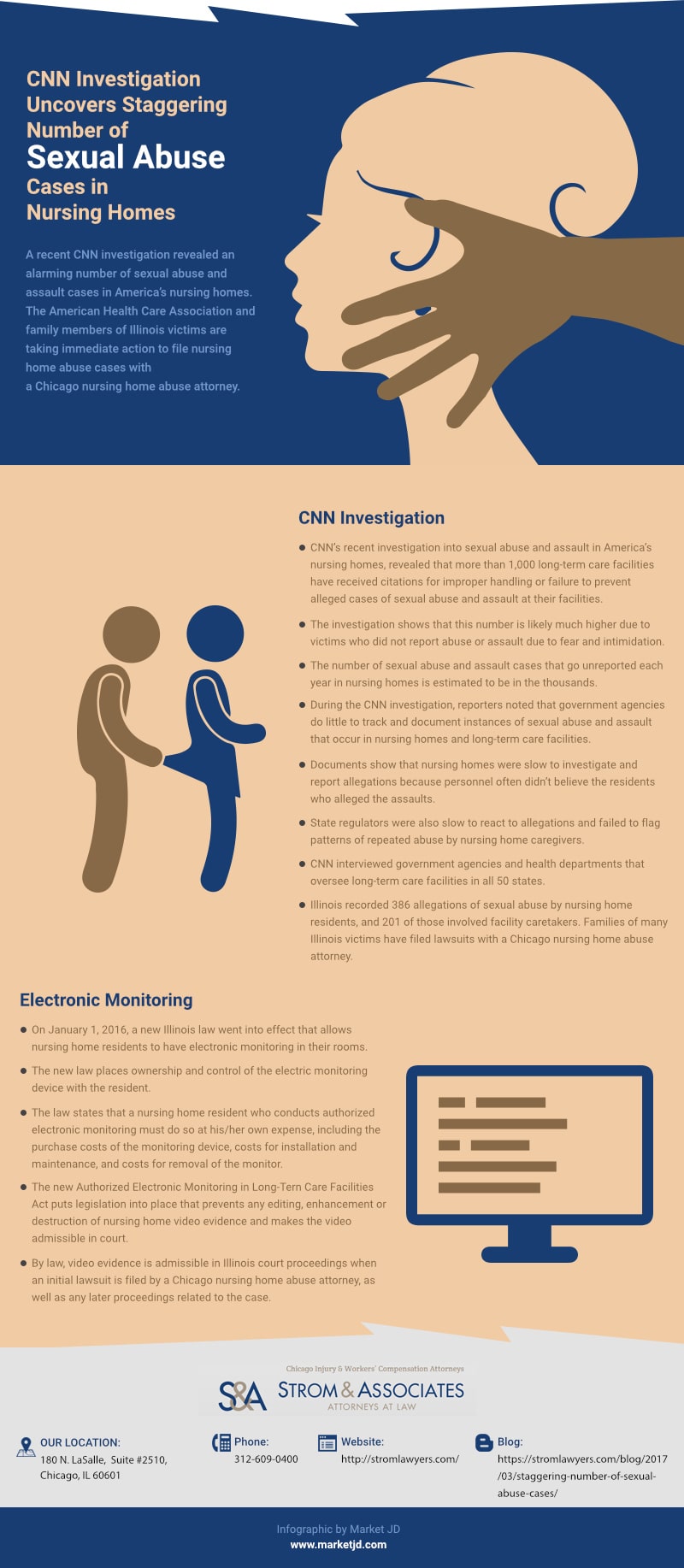A recent CNN investigation revealed an alarming number of sexual abuse and assault cases in America’s nursing homes. The American Health Care Association and family members of Illinois victims are taking immediate action to file nursing home abuse cases with a Chicago nursing home abuse attorney.

CNN Investigation
CNN’s recent investigation into sexual abuse and assault in America’s nursing homes revealed that more than 1,000 long-term care facilities have received citations for improper handling or failure to prevent alleged cases of sexual abuse and assault at their facilities. The investigation shows that this number is likely much higher due to victims who did not report abuse or assault due to fear and intimidation. The number of sexual abuse and assault cases that go unreported each year in nursing homes is estimated to be in the thousands.
During the CNN investigation, reporters noted that government agencies do little to track and document instances of sexual abuse and assault that occur in nursing homes and long-term care facilities. Documents show that nursing homes were slow to investigate and report allegations because personnel often didn’t believe the residents who alleged the assaults. State regulators were also slow to react to allegations and failed to flag patterns of repeated abuse by nursing home caregivers. CNN interviewed government agencies and health departments that oversee long-term care facilities in all 50 states. Illinois recorded 386 allegations of sexual abuse by nursing home residents and 201 of those involved facility caretakers. Families of many Illinois victims have filed lawsuits with a Chicago nursing home abuse attorney.
(Article continues below Infographic)

Electronic Monitoring
On January 1, 2016, a new Illinois law went into effect that allows nursing home residents to have electronic monitoring in their rooms. The new law places ownership and control of the electric monitoring device on the resident. The law states that a nursing home resident who conducts authorized electronic monitoring must do so at his/her own expense, including the purchase costs of the monitoring device, costs for installation and maintenance, and costs for removal of the monitor.
The new Authorized Electronic Monitoring in Long-Tern Care Facilities Act puts legislation into place that prevents any editing, enhancement or destruction of nursing home video evidence and makes the video admissible in court. By law, video evidence is admissible in Illinois court proceedings when an initial lawsuit is filed by a Chicago nursing home abuse attorney, as well as any later proceedings related to the case.







